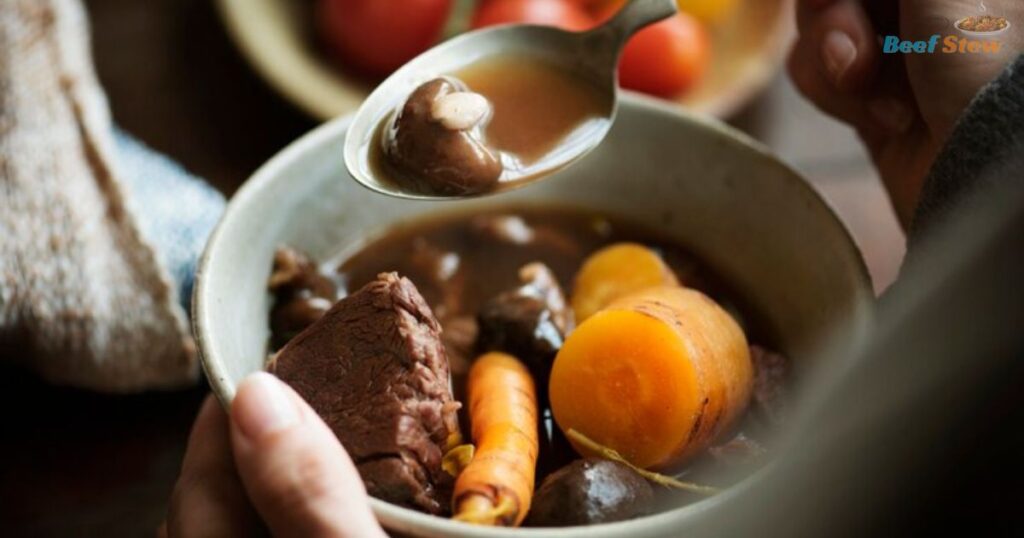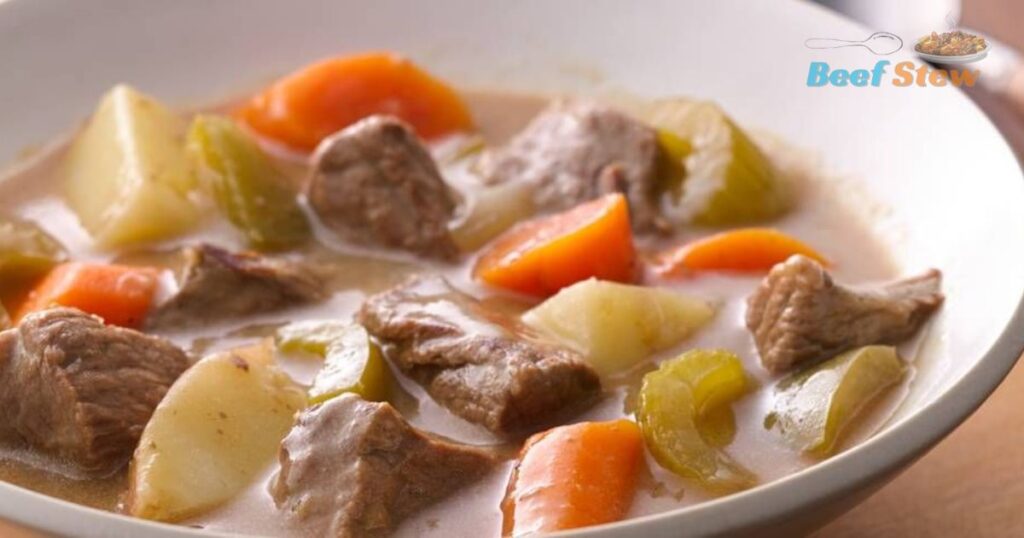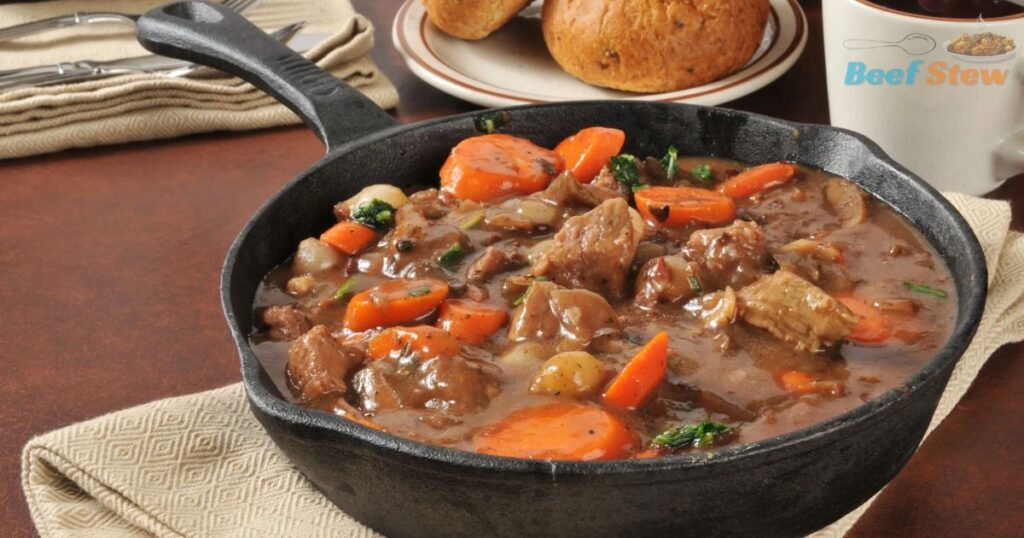Beef stew is a hearty, comforting dish made with tender beef, vegetables, and savory broth. It’s a classic comfort food, enjoyed for its rich flavors and satisfying warmth.
Hare is a question arise how long does beef stew last in the fridge? Well, in the refrigerator, beef stew typically stays fresh for around 3–4 days. But if you want to make it last longer without compromising taste or quality, freezing is the key.
Freezing beef stew can extend its shelf life significantly, allowing it to maintain its flavor and texture for up to 2–3 months. The freezing process drastically slows bacterial growth, preserving the stew’s deliciousness for you to enjoy at a later time.
| Type of Stew | Shelf Life in Fridge | Optimal Refrigeration Temperature |
| Chicken or Beef | About 3 days | 40 °F (4.44 °C) |
| Vegetarian | 4–5 days | 40 °F (4.44 °C) |
How long does beef stew last in the fridge?

Beef stew can last around 4–5 days when stored in the fridge. For best results, let the stew cool completely before transferring it to an airtight container. This dish is a fantastic meal prep option; it holds up well in the fridge and reheats wonderfully. Beef Stew Last in the Fridge is crucial information for planning your meals.
There’s no compromise in texture even after refrigerating and reheating, making it an ideal make-ahead meal. In fact, the flavors tend to deepen and improve the longer the stew sits, making the second or third day in the fridge the prime time to savor its delicious taste.
How long does beef stew last at room temperature?

Beef stew should only be kept at room temperature for about an hour to two hours for cooling before refrigeration. Allowing it to cool outside the fridge before storing helps prevent the refrigerator from overworking to maintain its cool temperature. Beef Stew Last in the Fridge is a critical consideration during this cooling process.
Leaving the stew out for more than three hours could pose health risks due to potential bacterial growth within the danger zone of 40°–140 °F (60 °C). Bacteria thrive in this temperature range, which could lead to foodborne illnesses. Understanding proper food storage in the fridge is crucial to ensuring food safety and preventing the risk of getting sick.
How to tell if beef stew has gone bad?

To determine if your beef stew has gone bad, rely on your senses. Consider the time it’s been in the fridge; if it’s over five days, it’s likely time to discard it. Beef Stew The last in the fridge becomes crucial here for gauging its freshness. Sniff the stew for any unusual, funky, or earthy odors, indicating potential mold growth.
Taste a small amount and notice if it tastes off. Inspect the surface and lid for any visible mold growth; if present, dispose of the stew. If the stew sits out for more than two hours or stays in the fridge beyond five days, discard it immediately to avoid potential foodborne illnesses. Trusting your senses is key to ensuring the stew’s safety for consumption.
How to store beef stew for longer?
- Use airtight containers to store beef stew in the fridge or freezer.
- Allow the stew to cool completely before storing it.
- Divide the stew into smaller portions for easier reheating and storage.
- Label containers with dates for easier tracking of freshness.
- Remove excess air from containers before freezing to prevent freezer burn.
- Store in the coldest part of the fridge or freezer for better preservation.
- Consider using freezer bags or vacuum-sealed bags for longer freezer storage.
- Reheat the thawed stew thoroughly to ensure safety and taste.
How to freeze beef stew?

Freezing beef stew for later enjoyment is simple with these steps. First, ensure the stew cools on the counter for an hour. Then, transfer it into an airtight container, cover it well, and pop it in the freezer. Beef Stew Last in the Fridge is an important factor to consider before freezing it for later consumption. Don’t forget to label and date the container for easy identification later. Here’s a tip: consider freezing the stew in individual portions or quart-size bags for convenience. This way, you can defrost only what you need without thawing the entire batch.
How to reheat beef stew?

Reheating beef stew can be done easily using a couple of methods. For the safest thawing, let it defrost in the fridge for 24 hours, considering Beef Stew Last in the Fridge to ensure it remains within its safe consumption period. If you’re eager to dig in right away, the microwave is your go-to option. Simply heat the stew until it hits 165 °F (73.89 °C), stirring occasionally for even warming. To prevent any splattering mess, cover the bowl while microwaving. Additionally, if your reheated stew seems too watery, here’s a quick fix to thicken it up for a heartier consistency.
FAQ’s
How long can you keep beef stew in the fridge?
About 3 days for chicken or beef stew, 4–5 days for vegetarian stew.
What’s the optimal fridge temperature for storing stew?
Maintain a temperature of 40 °F (4.44 °C) for optimal storage.
Can you freeze stew to extend its shelf life?
Yes, freezing stew can preserve it for up to 2–3 months without losing quality.
Conclusion
In exploring the fridge life of beef stew, it’s clear that proper storage is key to maintaining its freshness. Whether it’s savory chicken or beef stew lasting around 3 days or the heartier vegetarian version with a span of 4-5 days, refrigeration at 40 °F (4.44 °C) is crucial. But here’s the thing: what if we could enhance these timeframes? Perhaps, by adjusting ingredients or utilizing specific containers, we could, extend the shelf life further. There’s this curious notion about kitchen hacks or seasoning tweaks that might just unlock longer fridge longevity for our favorite stew creations. It’s these small adjustments that might lead to big differences in Beef Stew Last in the Fridge.











